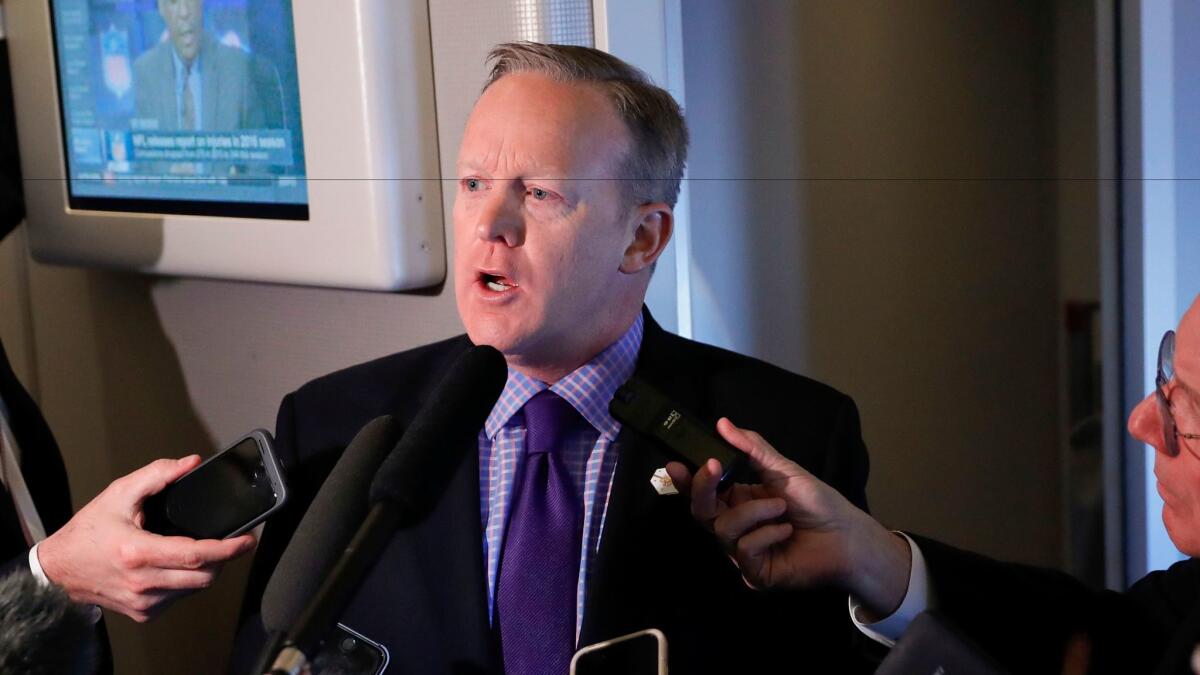Opinion: Here’s your border wall, America. And here’s the bill

- Share via
President Trump could very well make U.S. consumers, not the Mexican government, pay for the Great Wall of America.
According to a pool report from the New York Times’ Michael Shear, Press Secretary Sean Spicer said that his boss has settled on a 20% tax on all goods imported from Mexico. Exactly how this would work wasn’t disclosed, just the fact that Trump had chosen this particular mechanism as the way to fund the wall he ordered Wednesday to be built.
Spicer said the tax would be included in the comprehensive tax reform measure Republicans in Congress are expected to move this year. With $50 billion worth of imports coming in from Mexico, a 20% tax would generate $10 billion a year “and easily pay for the wall just through that mechanism alone,” Spicer said.
Of course, he’s ignoring the tax’s effect on behavior (how Democratic of him). Raise the price of something by 20% and people will buy noticeably less of it.
More important, the administration is ignoring who would be paying the tax, namely, Americans. Sure, the tax would hurt Mexican exporters in markets where they faced stiff competition, potentially forcing them to cut prices to maintain sales. But the tax would fall first on the consumers and businesses buying those goods.
By the way, the tax wouldn’t be confined to items from Mexico. According to Spicer, it would be levied on products from any country that exported more to the United States than it imported from us. So, add Canada, Japan, Germany and, of course, China to the list.
The ones who’d feel the sting of an import tax most immediately would be the shoppers who live paycheck to paycheck — people for whom cheap imports are a blessing, not a curse. If Trump had told them they were going to be paying for the wall, they probably would have been less enthusiastic about the idea.
Granted, as imports decreased, other economic forces would come into play. Currency values would likely adjust, increasing the buying power of the dollar and lowering the wholesale price of imported goods — theoretically to the point where consumers would pay no more with the tax than they did before it was levied. If that happened, the burden on American consumers would eventually be lifted. That’s just the theory, however, not a guaranteed result.
Some top congressional Republicans have been pushing a tax-reform plan that would effectively force businesses to pay taxes on the goods they import while eliminating taxes on exported products. On Twitter last week, Trump criticized this approach as “too complicated.” One thing you can say for the method Spicer outlined Thursday — it’s considerably simpler.
Twitter: @jcahealey
A cure for the common opinion
Get thought-provoking perspectives with our weekly newsletter.
You may occasionally receive promotional content from the Los Angeles Times.




